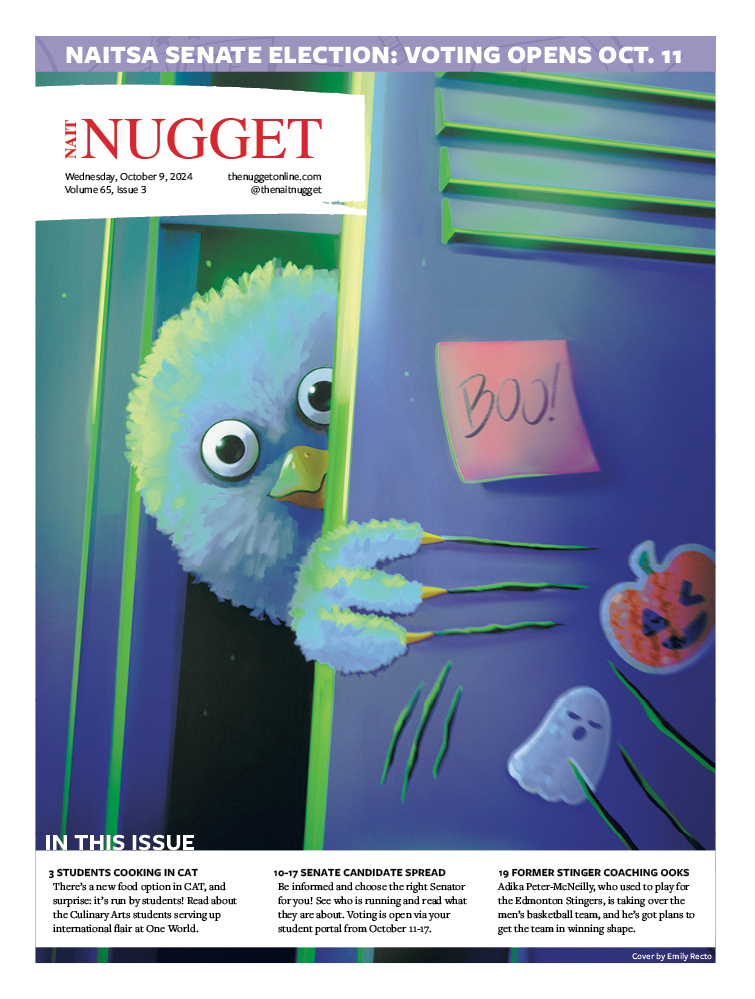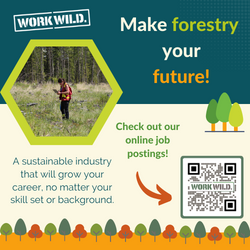As a Radio and Television student intending on entering the business, it’s preached that we students should be absorbing as much media as possible to understand the environment we’re walking into. This seems like the intelligent thing to do. Considering how rapidly developments are occurring in both radio and television, knowing the temperature of your market is invaluable. But it isn’t obvious whether that’s a good idea when it comes to social media.
Social media, at its best, is a tool that allows you to “stay connected.” At its worst and most common form, it’s the white noise in which our online personas dance.
Online media classes are becoming industry standards in this sector and NAIT is no exception. They essentially act as a basic social media primer to teach you how to use the different platforms correctly. This is great information for many students entering the industry. But what’s missing is training in how to properly consume social media. How do you translate looking at social media for hours every day to becoming an effective communicator on social media? Are you consuming the right social media?
During last year’s Canadian University Press annual conference (NASH 79), an idea surfaced that, as student journalists, the best way to fight the dreaded echo chamber is to follow 1,000 different reporters, news organizations, politicians, celebrities, people of influence, etc. Then, with all that conflicting information, your feed becomes the most bipartisan and diverse it can. You can absorb as many different voices as possible.
I can’t imagine what that feed looks like.
Why do you need so much additional noise, when you already get similar doses everywhere else you go online and in real life? You need to “stay connected,” at least that’s what people warn. But becoming a better social media user isn’t with more alleged connectivity, it’s with purposeful connectivity.
Many of the prominent people in today’s society, even media members, didn’t grow up with Facebook, Twitter and Instagram. They had years of life experience and education under their belt. More importantly, they had events and struggles they’d already worked through – they are more comfortable in who they are. Over social media they appear genuine.
Brendan Schneider, director of advancement at Sewickley Academy, has blogged about how students can use social media effectively. No. 1 on his list is to be genuine. No. 2, get connected.
The best “you” you can be on social media is a genuine one; someone who writes the way they speak and have it come across in their voice and tone. That’s a magic trick that doesn’t resonate with many. People put their foot in their mouth online every day but being genuine will allow you to have success.
Gillian Perkins, author of Sorted: Freedom Through Structure, says on her YouTube channel that the biggest myth about social media marketing is that’s how most successful businesses grow a following. That isn’t true. While some businesses can and do grow on social media, it isn’t how they come to be successful in the first place. They have a product people want and, in addition, many also pay for additional advertising on social media streams.
Polishing a turd or, in a business’s case, polishing an average product, isn’t going to grow like a business that has a valuable product. Now, take that knowledge and apply it to your own streams and profiles. There has to be something there for a follower. Give value for someone to come back to.
If you’re going to be a more influential member of Twitter for example, people will choose you because they think there’s underlying value in your statements. More than that, they follow you because that value will translate into future posts, which means there’s a constant callback.
Getting popular through social media is a bet on yourself. If you think growing a social media following is important, working on yourself and using social media for your own sake is the way to do it. Find the areas you think you can exploit and you’ll have the edge.
– Michael Menzies, Senior Editor






